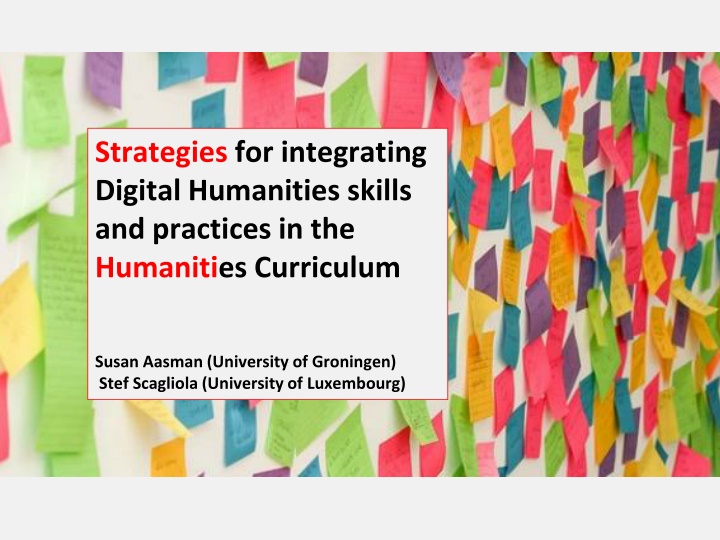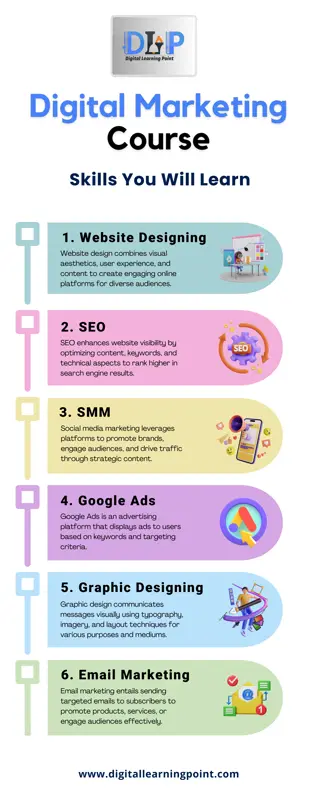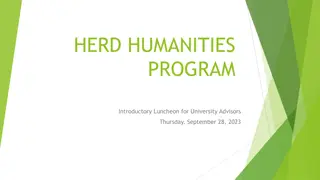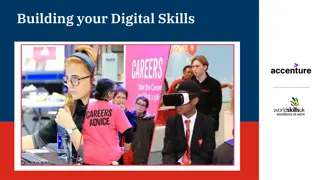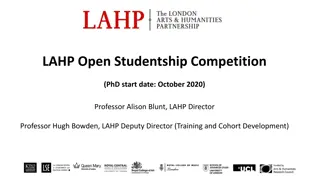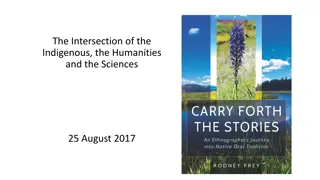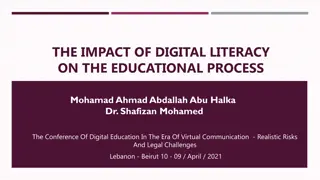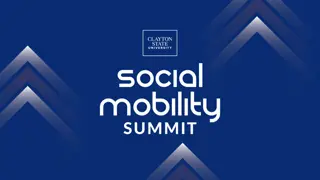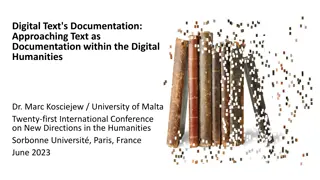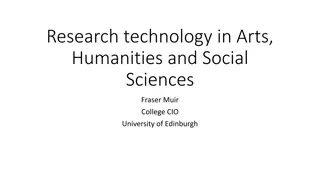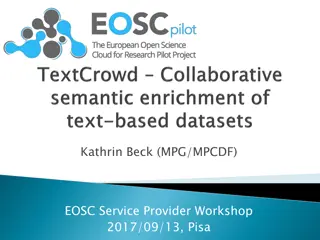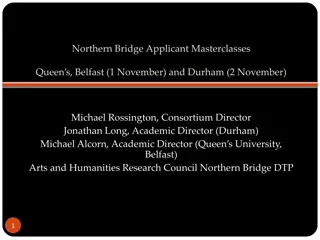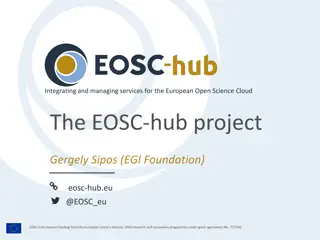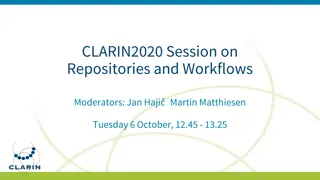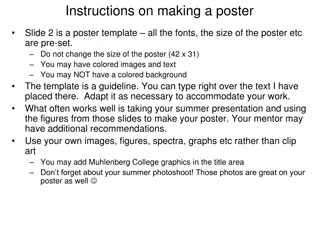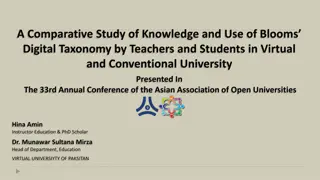Strategies for Integrating Digital Humanities Skills
Attract students with affordable software, clean data collections, and diverse courses. Explore challenges, examples, and solutions in integrating DH practices.
Download Presentation

Please find below an Image/Link to download the presentation.
The content on the website is provided AS IS for your information and personal use only. It may not be sold, licensed, or shared on other websites without obtaining consent from the author.If you encounter any issues during the download, it is possible that the publisher has removed the file from their server.
You are allowed to download the files provided on this website for personal or commercial use, subject to the condition that they are used lawfully. All files are the property of their respective owners.
The content on the website is provided AS IS for your information and personal use only. It may not be sold, licensed, or shared on other websites without obtaining consent from the author.
E N D
Presentation Transcript
Strategies for integrating Digital Humanities skills and practices in the Humanities Curriculum Susan Aasman (University of Groningen) Stef Scagliola (University of Luxembourg)
Challenges: Attracting students Consensus about requirements of basic skills Affordable software (commercial or open source?) Clean ready to use and uncluttered data collections Overview of tools often used in DH teaching Literature and examples of DH research Customized online environments E-labs, computer labs, laptops for rent Huge variety of courses, certificates and degrees Teaching general principles or engaging in specific research? Variety in disciplines
Hands on Part I Defining the challenges Introducing examples (3 cases: Stef and Susan) Some more examples (your turn) Re-defining the challenges (scaling them) Part II: Working on solutions in small groups Presenting possible solutions Part III: Conclusions (drawings by Sebastiaan Kohler) Writing a Manifesto
Case 1: MA Digital Humanities, RUG 2017-18 Week 1: Crash Course: intro DH Programme Blok 1 Coding for humanities Analysing data Understanding Digital Humanities Blok 2 Database design Collecting data Software and Data as culture Blok 3 Thesis lab Visualizing data/GIS Data in society Blok 4 Thesis thesis thesis
Case 3: Course registry http://dhcoursereg.hki.uni-koeln.de
Hands on Part I Defining the challenges Introducing examples (3 cases: Stef and Susan) Some more examples (your turn)
Hands on Part I Defining the challenges Introducing examples (3 cases: Stef and Susan) Some more examples (your turn) Re-defining the challenges (scaling them)
Hands on Part I Defining the challenges Introducing examples (3 cases: Stef and Susan) Some more examples (your turn) Re-defining the challenges (scaling them) Part II: Working on solutions in small groups Presenting possible solutions
Hands on Part I Defining the challenges Introducing examples (3 cases: Stef and Susan) Some more examples (your turn) Re-defining the challenges (scaling them) Part II: Working on solutions in small groups Presenting possible solutions Part III: Conclusions (drawings) Writing a Manifesto
manifesto Avoid overlap in courses Combine rather than divide the scarce expertise of teachers and limited student interest so far Share best practices and course materials, to improve the quality of courses Create space for new expertise in existing curricula Support the integration of DH practices in regular courses Support the integration of Information Sciences in DH Do not underestimate the costs in terms of time and resources for teaching DH courses in small groups Create space for new expertise in existing curricula Support the integration of DH practices in regular courses Support the integration of Information Sciences in DH Do not underestimate the costs in terms of time and resources for teaching DH courses in small groups .
